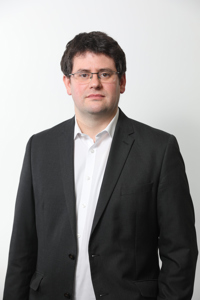
Ben Spencer
The Sunday Times
Nuclear fusion, the joke goes, is always 30 years away from delivering on its promise. Now, in the biggest energy crisis for a generation, there is renewed interest in what has always been seen as the holy grail of clean, cheap power. In a 4,000-word feature, selected for the cover of the Sunday Times Magazine, Ben Spencer described a new approach to fusion being pursued by a small start-up on the outskirts of Oxford. Engineer Nick Hawker, inspired by the flashes seen when an extraordinary species of shrimp snaps shut its claw, was trying to achieve fusion by firing a 22-metre gun at a 1mm drop of fuel. This technique - projectile fusion - is expected to be cheaper, more scaleable and quicker to achieve its goals than the huge multi-billion pound state-run projects which have dominated until now. After the piece was published Hawker’s company revealed it had achieved fusion for the first time. The results had not been verified until after publication, but it turned out fusion had been achieved on the very day that Spencer visited the company. July 3, 2022 - Artificial Intelligence: "I'm better than the bard" Artificial intelligence is everywhere - it is used for voice recognition in Amazon Alexa devices, in the grammar checks on computer software programs and the word prompts on text messaging software. In this piece, which was featured on the cover of the Sunday Times Culture supplement, Spencer explored whether modern AI can be truly creative, whether it can produce convincing prose and whether one day it could replace writers altogether. He worked with AI scientists to use the latest technology to produce a series of passages in the style of well-known writers and even to produce a piece of journalism. The results revealed the unsettling potential - and shortfalls - of this rapidly advancing technology. January 2, 2022 - It may not feel like it, but this is the beginning of the end of the pandemic At the very beginning of 2022, with the omicron Covid variant running rampant, hospitals overwhelmed and tests running out, it felt like a return to the darkest days of the coronavirus emergency. But Spencer spoke to trusted scientists and crunched the numbers to deliver a bold assessment - that the crisis had already reached its peak and the worst days of the pandemic were behind us. His conclusion has stood the test of time.